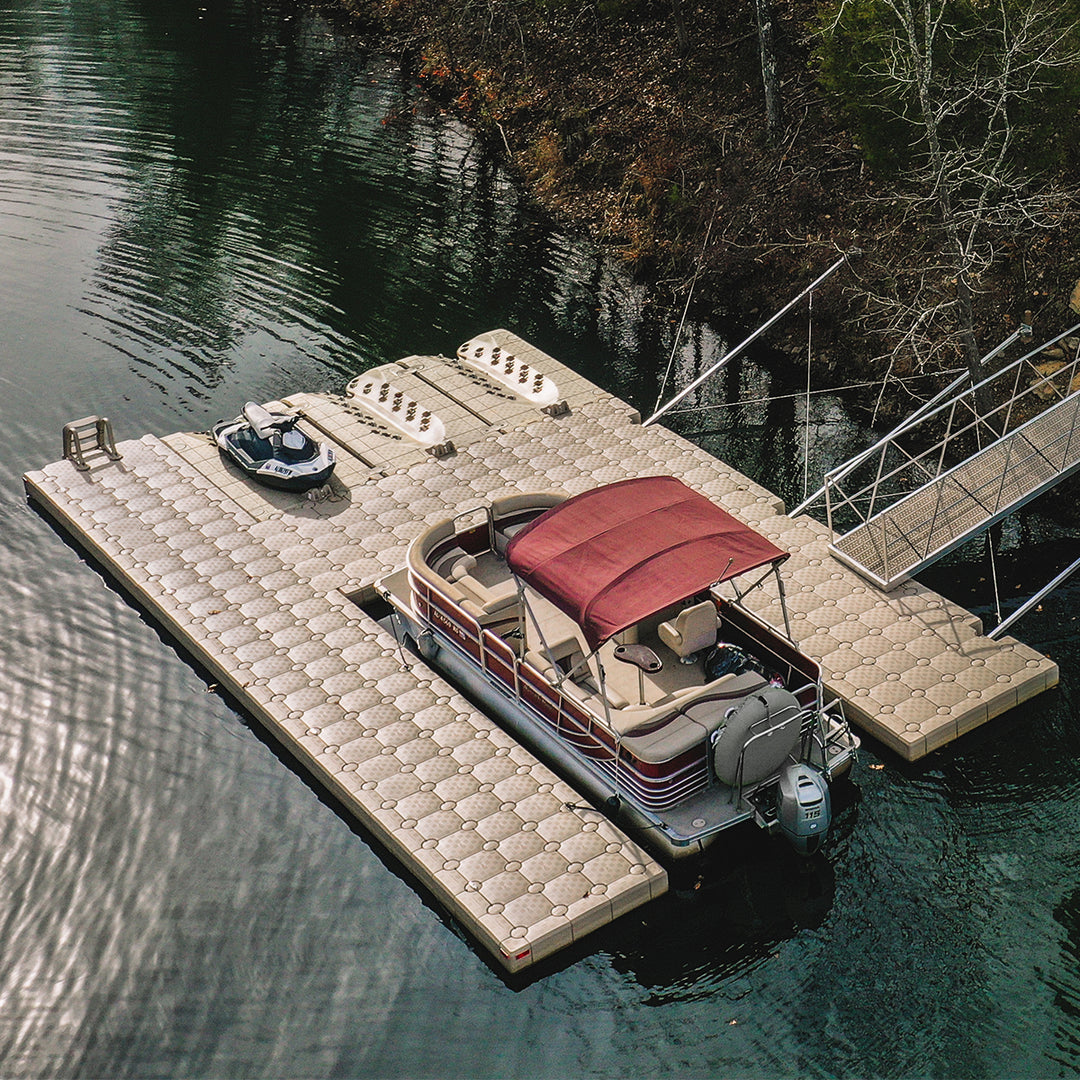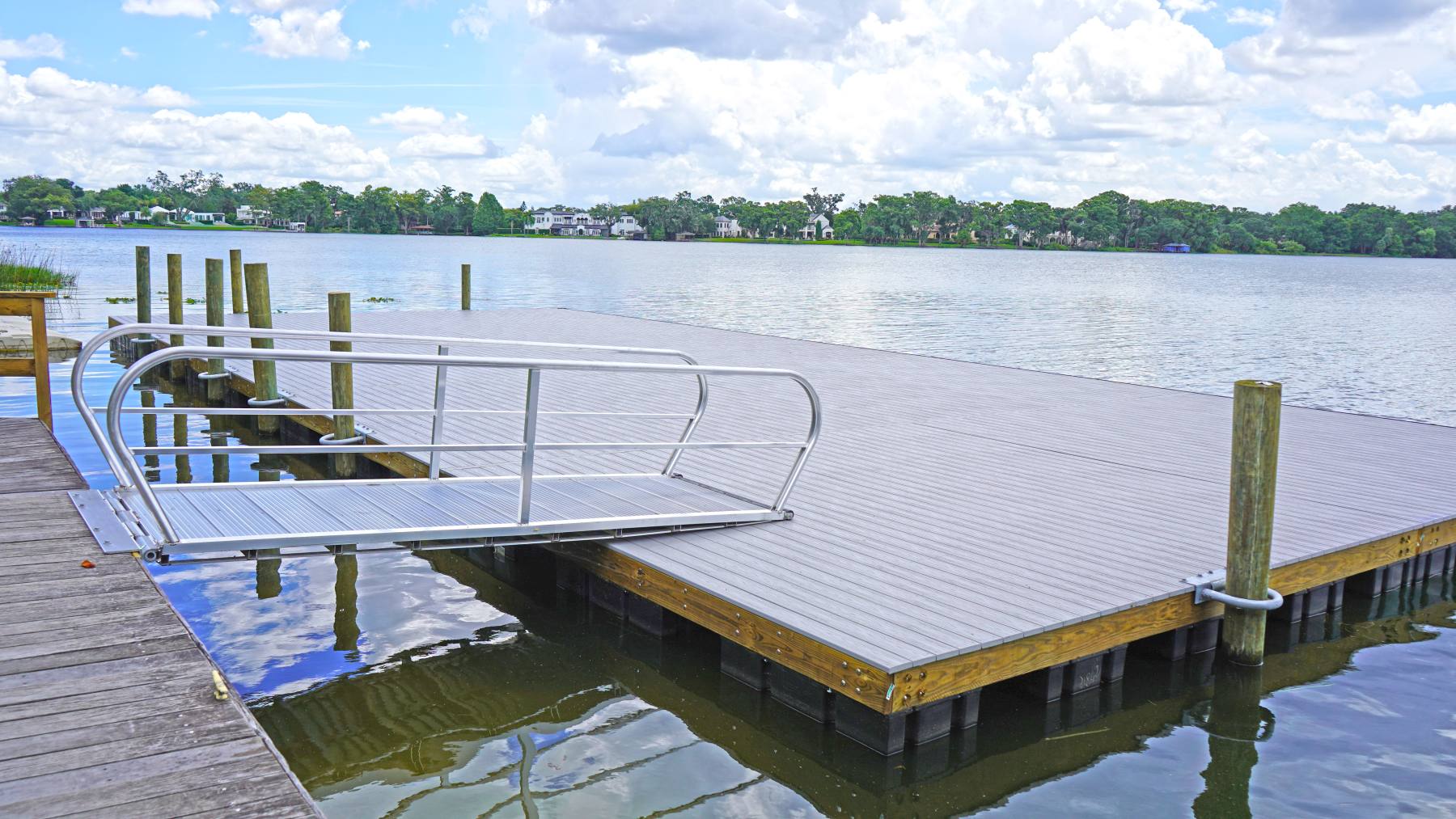Locate the Perfect Floating Dock Builder to Bring Your Beachfront Vision to Life
Locate the Perfect Floating Dock Builder to Bring Your Beachfront Vision to Life
Blog Article
Floating Docks: The Suitable Option for Versatile Water Access
Floating docks existing a compelling solution for a range of water accessibility requires, providing versatility that goes beyond standard mooring alternatives. Their capability to adapt to ever-changing water levels while ensuring security and safety makes them particularly advantageous for both commercial and recreational applications. In addition, the modular nature of floating docks promotes personalization, satisfying details demands. Nonetheless, the nuances of setup and upkeep, together with the range of applications, warrant a closer exam to fully value their prospective benefits and implications for river gain access to approaches.
Benefits of Floating Docks
Floating docks offer numerous advantages that enhance water accessibility for different applications. Their capability to drop and increase with altering water degrees makes them especially beneficial in environments with varying trends or seasonal variants. This versatility makes certain that vessels can quickly anchor without worry for the water's depth, giving a trusted system for recreational, business, and commercial uses.
In addition, floating docks are often built from resilient materials that resist rust, making them appropriate for long-lasting usage in aquatic atmospheres. Their installation is normally less intrusive than standard fixed docks, reducing the environmental impact and helping with quicker implementation (floating docks). This versatility permits easier relocation or reconfiguration according to customer demands or ecological modifications
Security is an additional crucial benefit; floating docks can offer secure access for individuals boarding or disembarking from boats and decrease the risk of mishaps associated with unpredictable surfaces. In addition, they can be made to accommodate a range of devices, such as fenders and cleats, enhancing functionality. Generally, floating docks stand for an effective option for enhancing water accessibility throughout diverse markets while advertising security and environmental sustainability.

Kinds of Floating Docks
Different kinds of floating docks cater to different demands and settings, each developed with details functions to maximize capability. The most typical kinds include modular docks, which contain interlocking sections that enable for very easy personalization and development. These docks are optimal for entertainment usage, as they can be tailored to fit numerous boat sizes and water problems.
An additional popular option is the stationary floating dock, which continues to be anchored in position yet floats with changing water levels. floating dock builder. This type is particularly fit for locations with marginal tidal variations, providing stable gain access to for fishing or swimming. In addition, there are drive-on docks, which feature a sloped style that enables watercrafts to quickly drive on and off, making them ideal for individual watercraft and smaller sized vessels
For business applications, sturdy floating docks are offered, created from enhanced materials to stand up to substantial lots and rough aquatic atmospheres. Green floating docks use sustainable materials and layouts to decrease ecological effect, typically integrating attributes like plant life to sustain regional wildlife. Understanding the numerous kinds of floating docks makes sure that users can select one of the most suitable solution for their details requirements.
Setup Process Summary
A successful setup of floating docks requires cautious preparation and interest to detail to make sure ideal efficiency and safety and security. The preliminary step entails evaluating the website conditions, including water deepness, present, and possible challenges. This analysis notifies the option of the proper dock products and layout customized to the specific atmosphere.
Following, acquiring essential permits is vital, as lots of jurisdictions have guidelines regarding construction on water bodies. Once authorizations are find here secured, the installment can proceed. Begin by preparing the foundation, which might involve anchoring systems or pilings tailored to the dock kind and neighborhood conditions.
Complying with the structure arrangement, put together the dock sections according to manufacturer specs. Make certain that all components are safely secured and straightened to withstand environmental tensions. Setting the dock in the marked location, ensuring it is level and stable.

Maintenance Tips and Best Practices
After the installation procedure is total, continuous maintenance plays an important role in ensuring the long life and capability of floating docks. Normal assessments must be carried out to identify any kind of indicators of wear, deterioration, or damages - floating docks. Examine for any type of loosened installations, cracks, or splitting up in the dock sections, as these can endanger structural honesty
Cleaning up the dock is vital to get rid of particles, algae, and various other build-up that can impact its look and security. Make use of a mild pressure laundry periodically to keep cleanliness without creating damages to the surface. Furthermore, using a protective sealer every few years can assist enhance durability and withstand ecological wear.
Pay focus to the mooring lines and supports, guaranteeing they are secure and cost-free from corrosion. Change any kind of degraded elements promptly to prevent threats. Seasonal adjustments may also be essential; during extreme weather, repositioning or strengthening the dock can avoid damages.
Applications for Floating Docks
Floating docks offer a wide variety of applications, satisfying both leisure and industrial requirements. In recreational settings, they supply smooth access to waterways for tasks such as boating, angling, and swimming. Their adjustable nature permits installation in varying water levels, making certain safe and stable gain access to no matter tidal variations.
Readily, floating docks are essential for marinas and waterfront services. They promote the docking of vessels, making it possible for reliable filling and dumping of items. Their modular layout permits very easy development or reconfiguration to suit transforming service demands, making them excellent for watercraft services, scenic tour procedures, or find out this here fishing charters.
Furthermore, floating docks are made use of in ecological applications such as water research study and habitat restoration. They can function as systems for clinical research studies, checking water high quality, or carrying out wild animals studies without disturbing sensitive communities.
In industrial contexts, floating docks are used in building jobs, providing accessibility to hard-to-reach locations for equipment and employees. Their adaptability, longevity, and marginal influence on the atmosphere make them an optimal selection for a large range of applications, boosting both performance and ease web of access in various water-based atmospheres.
Final Thought
In final thought, floating docks stand for an optimum solution for diverse water access needs, owing to their versatility, longevity, and modular design. Floating docks serve as an important possession for leisure, business, and ecological tasks, ensuring dependable accessibility to waterways and promoting sustainable practices in aquatic environments.
Floating docks present a compelling solution for a variety of water access needs, offering flexibility that transcends conventional mooring options.Floating docks deal many advantages that improve water access for various applications. Overall, floating docks stand for an effective service for improving water access throughout varied markets while advertising security and environmental sustainability.
An additional preferred alternative is the fixed floating dock, which remains secured in location however floats with changing water levels.In conclusion, floating docks represent an optimum remedy for varied water gain access to needs, owing to their flexibility, durability, and modular layout.
Report this page